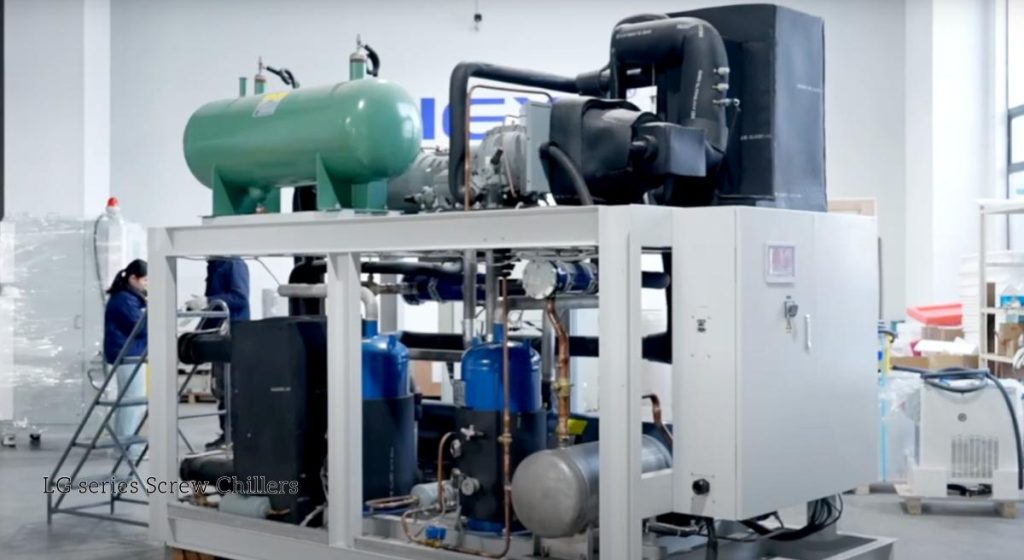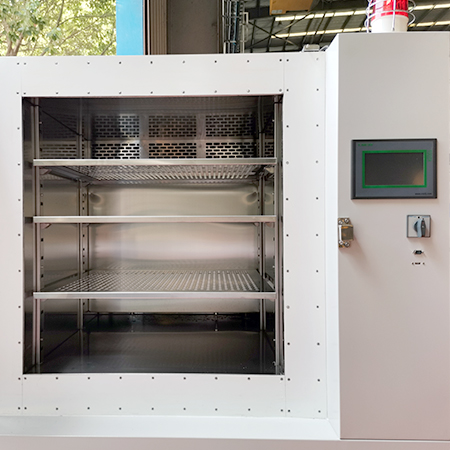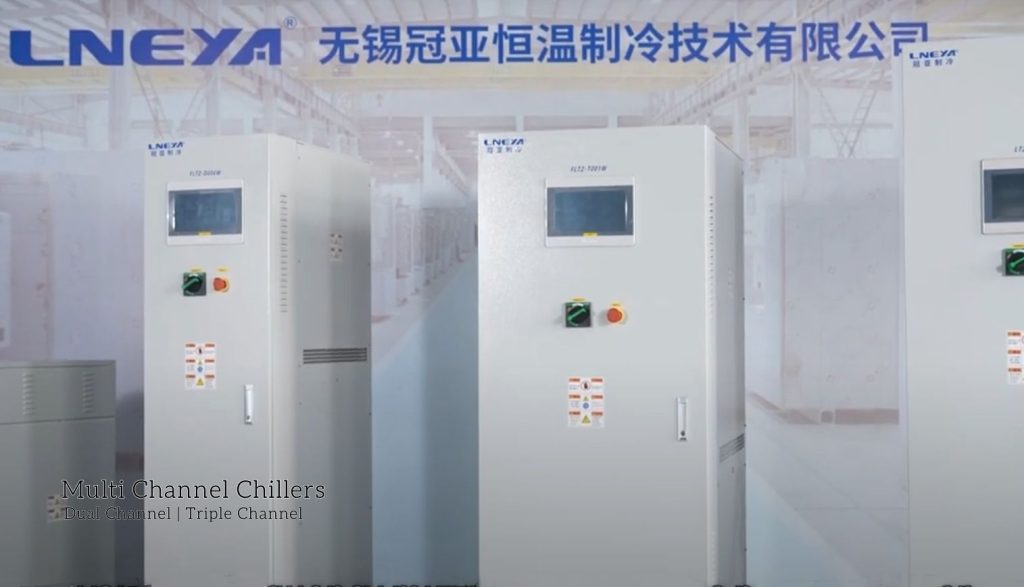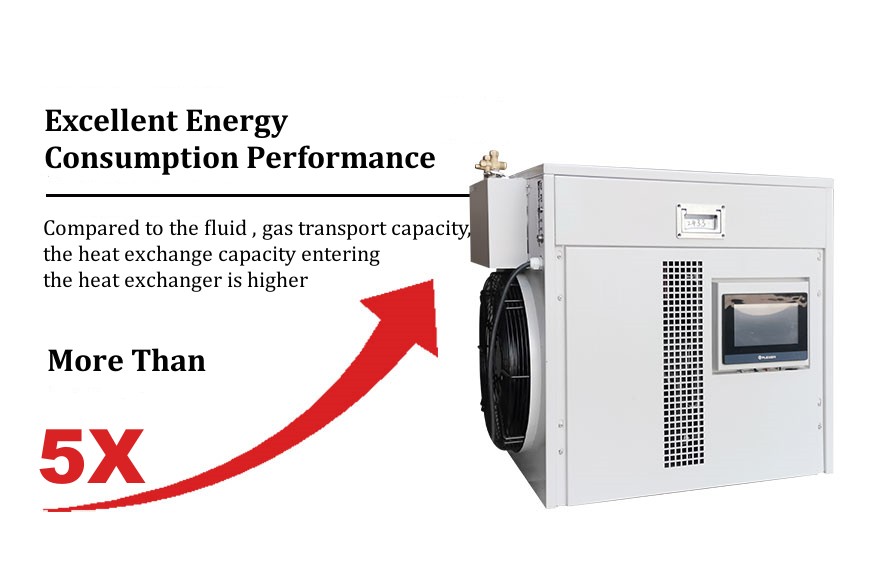Why Use Glycol Chillers in Laboratory Reactor Systems

- 4 Types of Refrigeration Systems Which One Fits Your Facility
- What is a VFD chiller VFD chiller vs Non VFD chiller
- What is a Gas Chiller
- What is a Scroll Chiller
- 2025년 8월
- 2025년 7월
- 2025년 6월
- 2025년 5월
- 2025년 3월
- 2025년 2월
- 2025년 1월
- 2024년 12월
- 2024년 11월
- 2024년 10월
- 2024년 9월
- 2024년 8월
- 2024년 7월
- 2024년 6월
- 2024년 5월
- 2024년 4월
- 2024년 3월
- 2024년 2월
- 2023년 9월
- 2023년 7월
- 2023년 6월
- 2023년 5월
- 2023년 1월
공냉식 냉각기 냉각기 냉각기 설치 냉각기 Chiller Troubleshooting 저온 조립 냉동고 냉각 냉각기 냉각 난방 순환기 냉각 난방 시스템 cooling system 이중층 유리 반응기 동적 온도 제어 시스템 냉동고 가스 냉각 냉각기 난방 순환기 산업용 냉각기 산업용 냉각 산업용 냉동고 산업용 냉장고 재킷 리액터 저온 냉각기 뉴스 제약 냉각기 공정 냉각기 원자로 냉각기 원자로 냉각 원자로 냉각 가열 원자로 가열 냉각 리액터 시스템 냉장 서큘레이터 냉장 냉각기 스크류 냉각기 반도체 냉각기 반도체 테스트 냉각기 sundi tcu 온도 제어 테스트 챔버 온도 조절기 초저온 냉각기 차량 테스트 냉각기 물 냉각기 수냉식 냉각기 wtd
In labs, especially chemical, biochemical, or pharmaceutical ones, the reactor is an essential tank. It handles heating, cooling, stirring, and blending. Experiment reproducibility depends on reactor temperature. It directly affects result reliability. For effective temperature control with accuracy, an increasing number of laboratories are opting for the 글리콜 냉각기 as a temperature control for the reactor.
Why use glycol as a coolant?
Pure water costs less than glycol, but why do most chillers employ glycol as the cooling agent? The prime reasons for this are:
Higher freezing point
The chiller will operate at 0°C, so the coolant within the pipes will freeze. Mixing glycol with water lowers the solution’s freezing point. At the right ratio, it won’t freeze even at -40°C. Therefore, glycol chillers can be operated as low as -20°C or even up to -40°C, so they’re ideal for those reactors where low temperature is required for the reaction.
Less Corrosion
Pure water acts as an electrolyte and causes electrochemical corrosion. High oxygen speeds up metal oxidation. Yet, glycol is introduced with corrosion inhibitors to create a protective coating on the surfaces of metals, preventing oxidation as well as electrochemical processes. The chiller parts made of stainless steel, copper, and aluminum are thus protected and their service life increased.
Good Stability
It will evaporate readily within high temperature conditions, particularly within open-loop applications, so it will need to be refilled often. glycol has a lower boiling point and vapor pressure. It resists deposits and acidification at high temperatures. This keeps heat transfer efficient after long use.

Advantages of glycol Chillers
Broader Temperature Range
Lab reactors handle many reaction types. Temperatures range from -40°C to +200°C. Pure water freezes at 0°C and is not capable of withstanding cold temperatures. Although thermal oil is heat-resistant, it is costly and may not be practical for small-scale laboratories. Glycol-water solution eliminates the disadvantages of the above two technologies.
It boils off gradually for high temperature handling and is slow to freeze for low temperature handling. Even when the equipment is turned off for several months, pipes will not freeze or fracture. Hence, university laboratories often employ glycol chillers for reaction temperature manipulation for low-temperature condensation as well as temperature-controlled reaction polymerization.
Reduces Temperature Fluctuations
If you’ve used an open-loop water cooling system, you likely understand the frustrations of temperature fluctuations. Glycol chillers use closed-loop systems with PID control. This allows precise heating and cooling and fast response. Temperature stays within ±1°C.
High Compatibility
Reactors come in a range of materials, some of these being stainless steel, double-glazed, glass-lined, and PTFE-coated. Coolants must be in contact with the reactor, and most reactors are costly special designs. Corrosive coolants can destroy the reactor. By adding corrosion inhibitors, glycol-water solutions within the range 30 to 50 percent show low corrosion to metals such as stainless steel and glass, making them easier to operate safely.
High Integration
Glycol chillers have an integrated design. Cooling, heating, control, and circulation are all in one unit. The advantage of not requiring a different heating system gives them a small footprint, making them perfect for small labs.
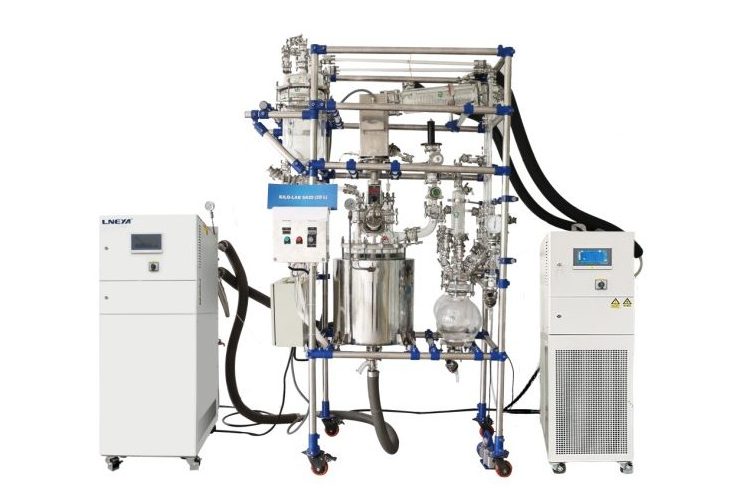
Affordable Prices
Oil chillers 그리고 water-cooled systems with cooling towers are expensive, making them unnecessary for small labs. Air-cooled glycol chillers offer a reasonable purchase price and simple maintenance, making them a cost-effective and efficient solution for reactor temperature control in small labs.
결론
Are you looking for a temperature controlling system for your lab reactor? Glycol chillers have been selected by numerous labs for stable operation and high cost efficiency. LNEYA has standard models for different applications as well as customized chiller services. We apply our knowledge to assist you to overcome the most troublesome issues among different reaction processes.
Contact us now for technical support and a quote.
관련 냉각기
문의하기
TEL:전화
이메일: 이메일
위챗 및 왓츠앱:

Wechat QR

문의 사항이 있으시거나 견적이 필요하신가요? 아래 양식을 작성해 주시면 저희 팀이 24시간 이내에 답변해 드리겠습니다.
 LNEYA 산업용 냉각기 제조업체 공급 업체
LNEYA 산업용 냉각기 제조업체 공급 업체









